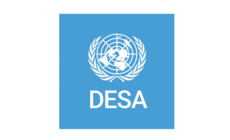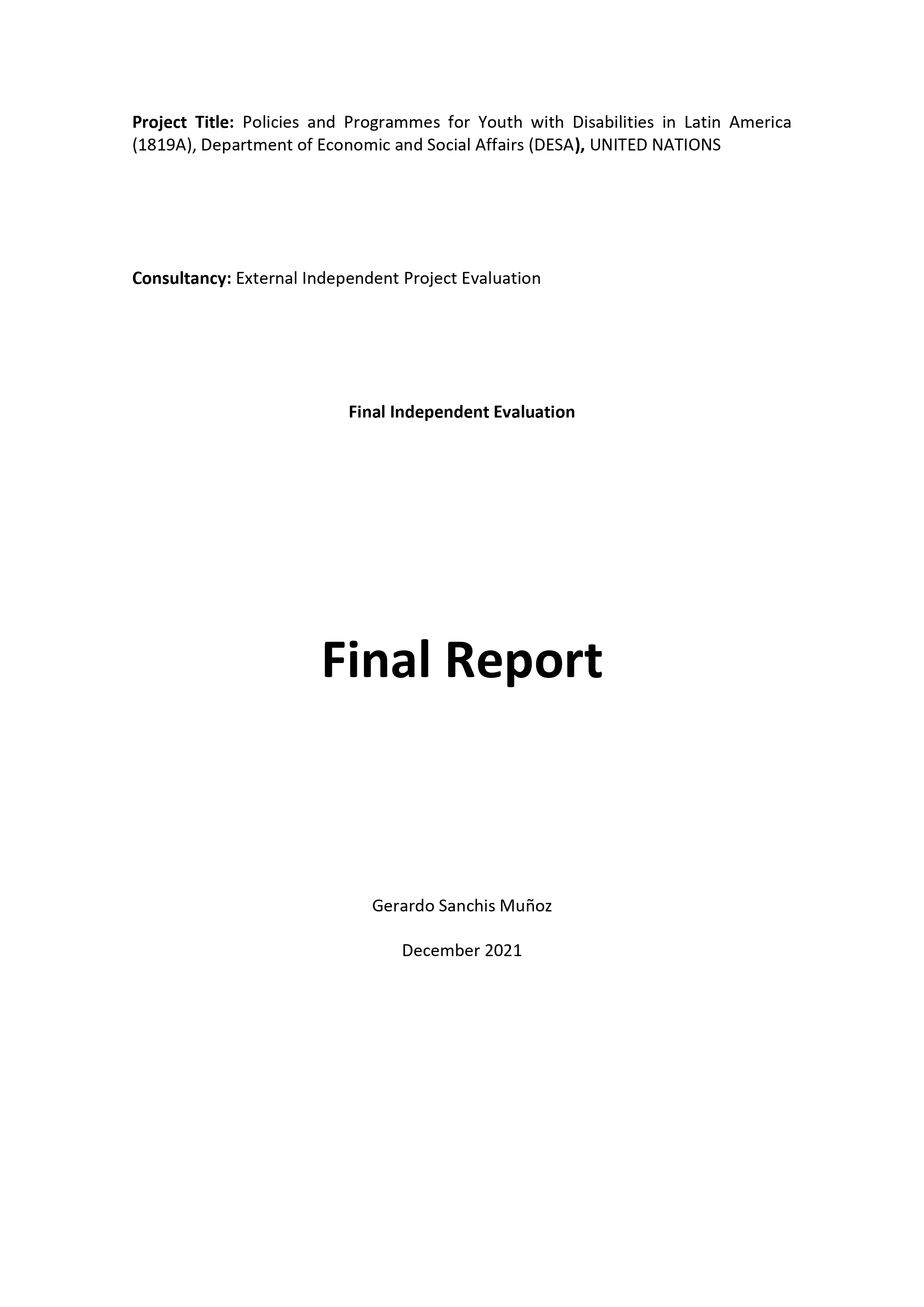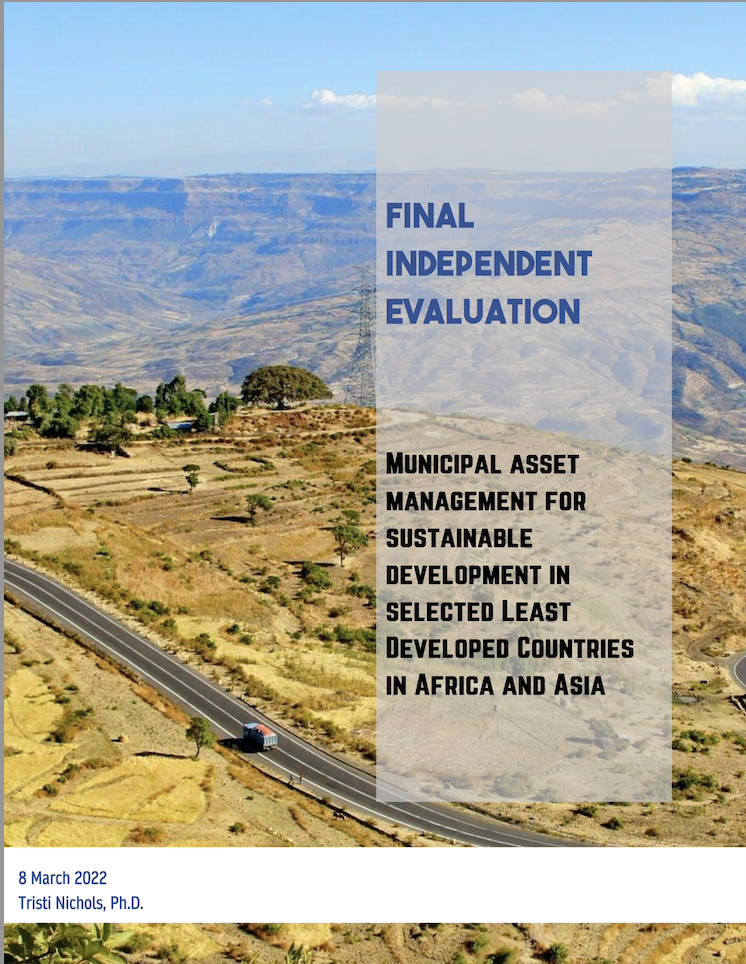Institution Background
The United Nations Department of Economic and Social Affairs (UN DESA) is the Secretariat Department mandated to support the developmental pillar of the UN, providing a vital interface between global policies on sustainable development agreed upon at key UN Conferences and Summits of the UN General Assembly, and in the UN Economic and Social Council and its subsidiary bodies, and national actions. UN DESA produces the backbone of data and analyses that inform the global policy decisions on economic, social, and environmental issues and provides technical assistance to developing countries, at their request, to help translate these decisions into viable national strategies and plans. UN DESA’s work is rooted in the UN Charter, guided by the 2030 Agenda for Sustainable Development and other major global agreements.
Evaluation Function
The evaluation function is critical to improve UN DESA’s programme performance. The Programme, Monitoring & Evaluation Unit (PMEU) in the Office of the Under-Secretary-General (OUSG) was established as part of the Departmental reform to strengthen UN DESA’s evaluation function. The Unit’s responsibility is to develop, coordinate and implement a robust internal monitoring and evaluation programme to enhance the effectiveness, efficiency, accountability and coordination of the Department’s work.
PMEU also reviews and updates UN DESA’s evaluation policy in line with the UN mandates and guidance on evaluation, the Secretariat-wide Administrative Instruction for Evaluation, and UNEG Norms and Standards; coordinates the formulation of UN DESA’s proposed programme plan in close collaboration with the Department’s subprogrammes; and produces monitoring reports for decision making by senior management. PMEU also serves as the focal point for evaluation and audits of UN DESA.
On the other hand, the Strategic Programme Development, Coordination and Partnership Section in the Capacity Development Progamme Management Office (CDPMO) of UN DESA supports the evaluation of the Department's capacity development projects, providing overall evaluation guidance and quality control to the evaluation of projects implemented by the subprogrammes in UN DESA, ensuring that lessons learned and good practices are incorporated in the future programming of capacity development projects and activities. The Section issues and updates the project evaluation guidelines, in line with the departmental evaluation policy, which define clear roles, responsibilities, and procedures for conducting project-level evaluations. In addition, CDPMO hosts the programme management team, including a dedicated evaluation officer for the Development Account which funds projects by 10 implementing entities of the UN Secretariat.
Independence
PMEU, as the central evaluation capacity in UN DESA, reports to the Under-Secretary-General through the Chief of OUSG. PMEU operates independently from other operational and management functions within UN DESA.
For CDPMO, it oversees and provides quality assurance to the implementation of project evaluations. These are conducted by external consultants managed by the Department’s substantive Divisions in line with UN DESA guidelines for project evaluation and UNEG Norms and Standards for evaluation, which underline the importance of independence in all stages of the evaluation process from planning to reporting.
Agenda Setting and Evaluation Planning
PMEU drafts an internal evaluation plan for a three-year period where it seeks inputs from UN DESA Directors and Heads of Offices on possible department-wide or cross-cutting internal evaluation topics. The topics are reviewed by PMEU and approved by the Under-Secretary-General after considering their strategic nature and relevance to the Department as a whole.
In line with UN DESA's evaluation guidelines, CDPMO encourages the conduct of evaluation of all capacity development projects funded by the Development Account and projects funded by extra-budgetary resources, when stipulated in the donor agreements. Independent final evaluations are also strongly encouraged for all multi-year DESA projects that have a duration of two years or more and have a budget over $300,000 in donor funding or cost-sharing. These evaluations are conducted for accountability and learning purposes to support evidence-based programming within the Department.
Quality Assurance
UN DESA evaluations are guided by its evaluation policy and conducted based on the UNEG Norms and Standards. Peer reviews or reference groups composed of internal and external experts are also used in the evaluation process.
Use of Evaluation
Evaluation findings and recommendations are discussed and disseminated across the Department to ensure that senior managers take them into account in future programming. Recommendation action plans are formulated to ensure that evaluation recommendations are implemented and aligned to the annual programme plans and budgets. PMEU regularly monitors the implementation of these recommendations in collaboration with the subprogrammes.
For capacity development evaluations, CDPMO plays a key role in ensuring that evaluation recommendations are systematically followed up and integrated into future project planning, programming and implementation. All evaluation recommendations are entered into a centralized evaluation recommendation tracker, which is managed by CDPMO in collaboration with Divisions/Offices of UN DESA. This process not only facilitates the dissemination of lessons learned across the Department but also supports a more transparent monitoring of the implementation. CDPMO also encourages the sharing of best practices identified through the evaluations to strengthen the design and execution of future capacity development projects and activities.
Joint Evaluation
PMEU works regularly with OIOS, the Joint Inspection Unit and the Board of Auditors on the evaluation of UN DESA’s programme of work and joint projects.
In 2021-22, the Development Account (DA) Programme Management Team in CDPMO conducted an evaluation of the DA 10th tranche Programme on Statistics and Data, which was jointly implemented by the 10 DA implementing entities to respond to the needs of Member States to generate and collect data to support the 2030 Agenda for Sustainable Development. The evaluation was supported by the evaluation units of all the 10 implementing entities.
In 2024-2025, CDPMO will conduct a joint evaluation of the DA Project “Towards Integrated National Financing Framework (INFF)” under the 13th tranche. This evaluation, which engages multiple UN entities including DESA, UNCTAD, and the five regional commissions, is designed to rigorously assess the project's success in enhancing national capacities to mobilize and align financing with sustainable development goals in participating countries. CDPMO's role in this joint evaluation is crucial for extracting valuable lessons and best practices, which will guide future capacity development initiatives and contribute to the global discourse on financing for development.



